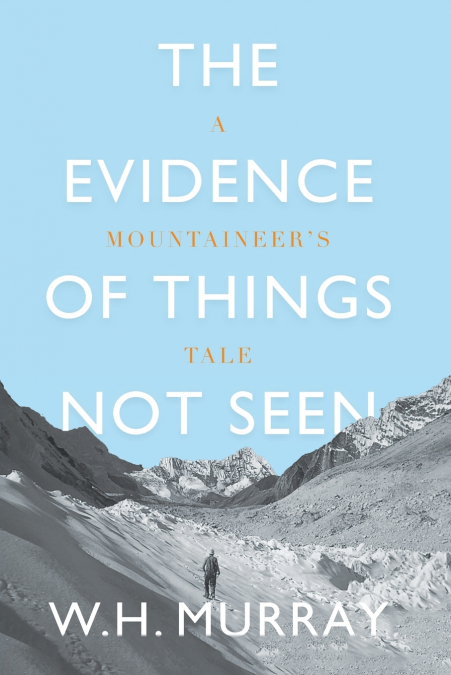
 Librería Perelló (Valencia)
Librería Perelló (Valencia)
 Librería Aciertas (Toledo)
Librería Aciertas (Toledo)
 El AlmaZen del Alquimista (Sevilla)
El AlmaZen del Alquimista (Sevilla)
 Librería Elías (Asturias)
Librería Elías (Asturias)
 Librería Kolima (Madrid)
Librería Kolima (Madrid)
 Donde los libros
Donde los libros
 Librería Proteo (Málaga)
Librería Proteo (Málaga)
The Evidence of Things Not Seen is the autobiography of remarkable mountaineer, writer and environmentalist W.H. Murray. After being introduced to climbing in his early twenties, Murray’s relationship with the outdoors was shaped as much by his time on the mountains as away from them. His early Scottish climbs were brought to a halt by the Second World War, which saw him spend three years as a Nazi prisoner of war. These years were devoted to not only to philosophical study, but also to writing his classic Mountaineering in Scotland not once, but twice, on toilet paper.The time to write about mountains only fuelled Murray’s enthusiasm to climb them. The regeneration in mountaineering that followed the war saw Murray complete three Himalayan expeditions, alongside other iconic figures such as Doug Scott, Tom MacKinnon and Tom Weir, and Eric Shipton. He not only explored Himalayan peaks never before attempted by westerners, but also established the crucial Khumbu Icefall route up Everest, which paved the way for the mountain’s first ascent in 1953.Later life saw Murray return to Scotland and begin the fight to conserve the wild places that motivated him. From pioneering the John Muir Trust to fighting threats to forestry, Murray’s writing is laced with a philosophical edge and a contagious appreciation for Scotland’s wild places, capturing the essence of why Murray’s work has been inspiring readers for decades.Written just before his death in 1996, and with a foreword by renowned Scottish mountaineer Hamish MacInnes, The Evidence of Things Not Seen is a must-read for anyone for which the mountains are still a source of wonder.